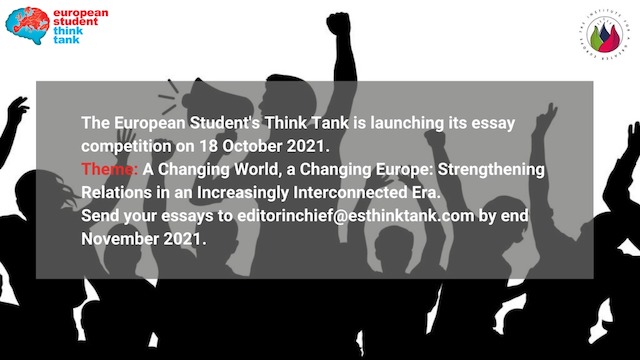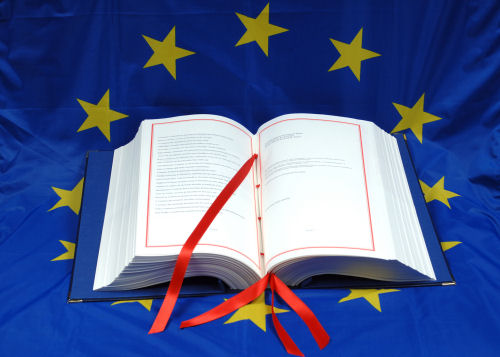
By Riccardo Venturi from 1989 Generation Initiative, as part of the Pitching Europe series published with Campus Europe.

True “Euro-Enthusiasts” always think optimistically about the possible reforms that could re-shape the European Union, reversing what is probably its biggest crisis ever. There has been a lot of discussion on the various formulas capable of improving the political status of Europe and its legitimacy among the citizens, and on the related measures changing the current economic models towards greater integration and sustainability.
The 1989 Generation Initiatives places itself amongst these “visionaries”. However, we believe that, before and besides thinking about a way forward for the EU, we must clarify what Europe is and what being European means in a wider sense, in order to achieve concrete results. That is why the Initiative focuses primarily on civil society, putting Europeans, specifically the youth, at the centre of its agenda.
Following this premise, we can easily affirm that European integration cannot be considered a goal by itself, our scope cannot be simply political and must go beyond this dimension. We do not aim at involving people in a project designed to “generate” a common identity. On the contrary, the 1989 Generation Initiative believes that – as we are already de facto Europeans citizens, with all the things that this entails – we need to get practical customs clearance for this fact by developing projects accessible to everyone. The next generations in particular will not be willing to think about their lives without the conditions, the situations and the privileges that relate to the status of EU citizen. Thus, in order to re-define the European project, we must adopt a bottom-up approach based on the common ground of personal experiences, professional advantages, eased mobility and channels of interaction deriving from the EU, and expand it. In fact, this spiral of opportunities is already feasible in Europe right now, thanks to an existing reality made of common values, expectations and rules that we all share.
In the long term, this scenario could further evolve into the idea that moving, living, working and studying in different countries and languages could be “routine” for any European citizen. The cultural barriers would be necessarily strained by these habits and the emergence of a prevailing European dimension would be the natural consequence of this process, as it has already happened to millions of people. To accelerate the course of the events and achieve these outstanding objectives, the 1989 Generation Initiative bases its projects on the so-called “Erasmus spirit”, potentially broadening its outreach to the entire society. Hence, we call for two specific policy proposals following the above-explained approach in two crucial areas: education and the media.
In relation to the first one, we aim at introducing a “Pan-European Accreditation Agency of Education” capable of breaking the borders between the national education systems and the different kinds of learning, closing the formal gap between formal and non-formal education. Basically, any institution offering training activities and courses could submit its application to the Agency, that would in turn evaluate the offered courses according to the compatibility with its overall goal and quality assurance of the learning outcomes. This policy not only has the potential to increase the overall quality of the educational space by promoting integration between the different systems, but it could also create new meeting spaces for all the European citizens involved in education or in the life-long learning. Most importantly, we believe that this reform will leave an important footprint in the educational paths of the next generations that will have increased opportunities to choose their study or training destination abroad.
At the same time, as the 1989 Generation Initiative considers civil society a natural engine for projects and ideas that could favour intra-European interactions, this is especially true for the media sector, where the new forms of communication and social platforms are changing the old national and vertical system of information. The proposal of a “European Media Incubator” entails a funding scheme articulated in Key Actions that is supposed to facilitate the development of a common European public sphere in general and of pan-European media grassroots projects in particular. Projects would simply need to be in media, demonstrate a European dimension and have a potential for viability. That being so, this platform would combine in an integrated approach funding, services, mentorship, logistical support, know-how as well as training for journalists and non-professionals. This would foster greater public debate on European themes across the continent and would also start a mechanism through which multi-national media projects would be easier to set up.
To conclude, with these two proposals, we envisage concrete ways through which European youth can take ownership of the European project, combining their direct interests and expectations with an environment full of new opportunities. After all, we cannot talk about Europe without putting the main characters at the centre of its stage.

 The geopolitical role of the Sahel: the influence of the EU and other Great Powers in the Malian crisis
The geopolitical role of the Sahel: the influence of the EU and other Great Powers in the Malian crisis  Is Nuclear Disarmament Still a Dream? The Third Meeting of State Parties in Perspective
Is Nuclear Disarmament Still a Dream? The Third Meeting of State Parties in Perspective  Strategic Saboteur: Hungary’s Entrenched Illiberalism and the Fracturing of EU Cohesion
Strategic Saboteur: Hungary’s Entrenched Illiberalism and the Fracturing of EU Cohesion  The invention of development: power, narrative, and the afterlife of Truman’s speech
The invention of development: power, narrative, and the afterlife of Truman’s speech 


